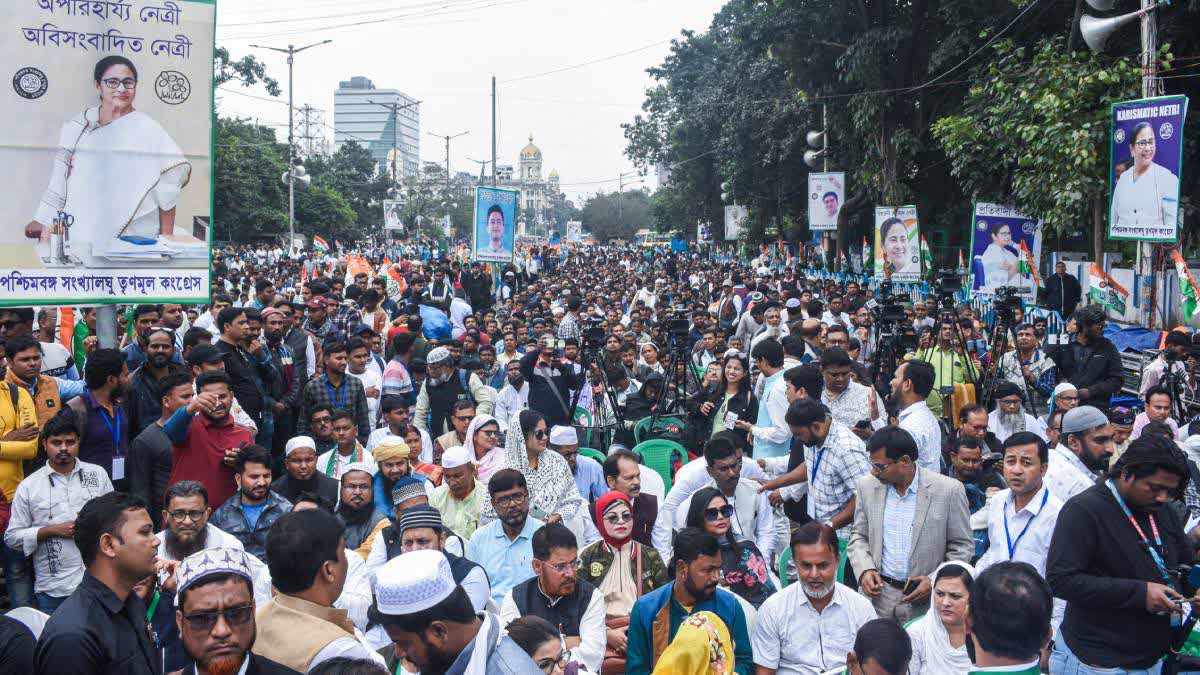Bengaluru: Amid the Winter Session of Parliament, Prime Minister Narendra Modi lambasted Congress for its handling of Waqf-related policies, accusing it of promoting appeasement politics and undermining the Constitution’s secular fabrics. Among the 16 bills listed for discussion is the controversial Waqf Amendment Bill, which seeks significant changes in the management of Waqf properties.
"The Congress has destroyed the Constitution’s secular values in its hunger for power, setting up systems like the Waqf Board solely for appeasement," he said.
Modi accused Congress of enacting Waqf-related laws solely for appeasement, disregarding Supreme Court directives and constitutional principles. Speaking about the 2014 decision by the outgoing Congress-led government to transfer properties to the Waqf Board, he said, "People of Delhi would be shocked to know that several properties were handed over to the Waqf Board in 2014. This was done purely to increase their vote bank. Dr Ambedkar’s Constitution has no place for such appeasement". He alleged that Congress destroyed secular values for its political gain.
Speaking to ETV Bharat, former union minister and Congress leader Dr K Rehman Khan rebutted Modi’s allegations, calling them baseless rumours. He clarified that the issue of Waqf properties dates back nearly three decades and involves properties that originally belonged to Waqf, including mosques, dargahs, and imambaras — a shrine built by Shia Muslims for mourning congregations.
"The properties in question have belonged to Waqf for decades. The decision to hand them back to the Waqf Board was based on legal and historical grounds, not appeasement politics," he said.
Dr Khan said during Indira Gandhi’s tenure, these properties were taken on a 99-year lease by the central government but later became the subject of legal scrutiny. The Delhi High Court, hearing a writ petition, questioned why these properties should not be returned to the Board. Subsequently, the government decided to denotify and hand them back to Waqf.
The Waqf Amendment Bill 2024: A Point of Contention
The proposed Bill, rechristened as the Unified Waqf Management, Empowerment, Efficiency, and Development Act, aims to reform the management of Waqf properties. While the government claims the bill will bring greater transparency, the opposition and Muslim organisations have raised serious concerns about its ramifications. They argue that the bill grants the government extensive powers, threatening community ownership of these properties.
"The proposed Waqf Amendment Bill raises serious concerns about the autonomy of Waqf properties and risks eroding the rights of the Muslim community," a veteran leader of an opposition party said.
A Joint Parliamentary Committee (JPC) has been tasked with vetting the bill, consulting stakeholders, and submitting a report to Parliament. The issue remains a heated topic as stakeholders await further developments during the Winter Session.
Also Read:



